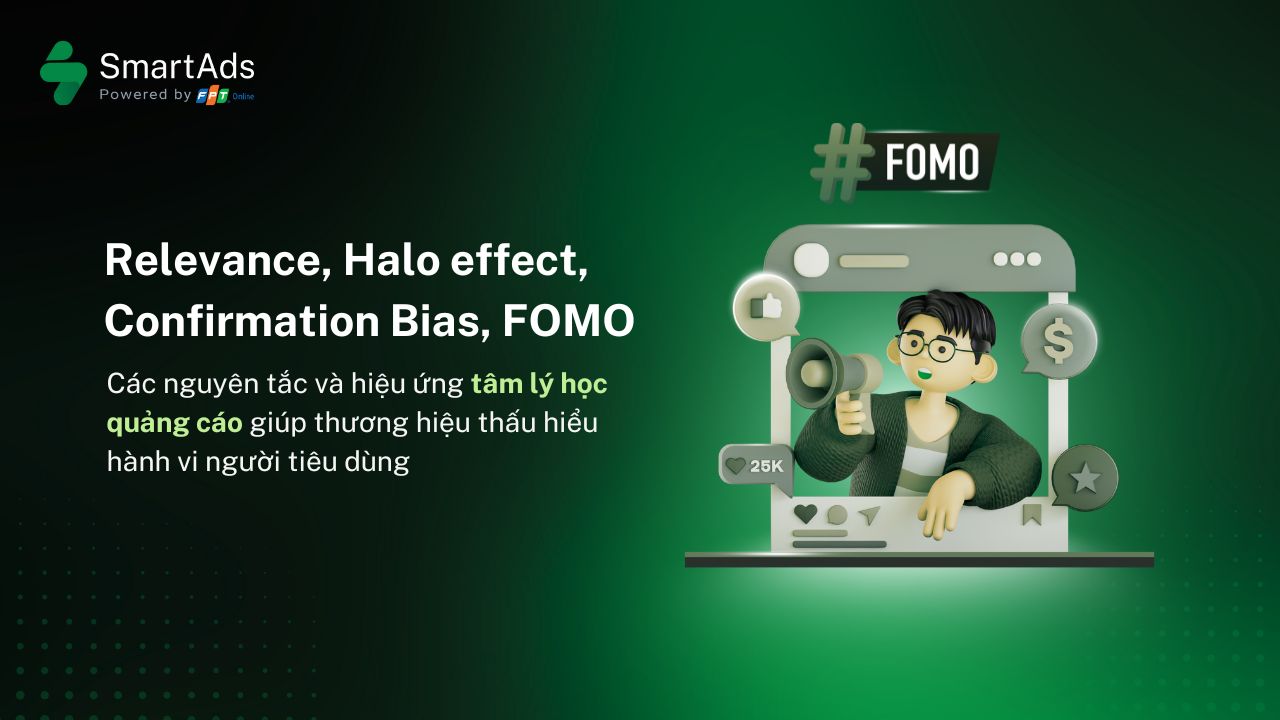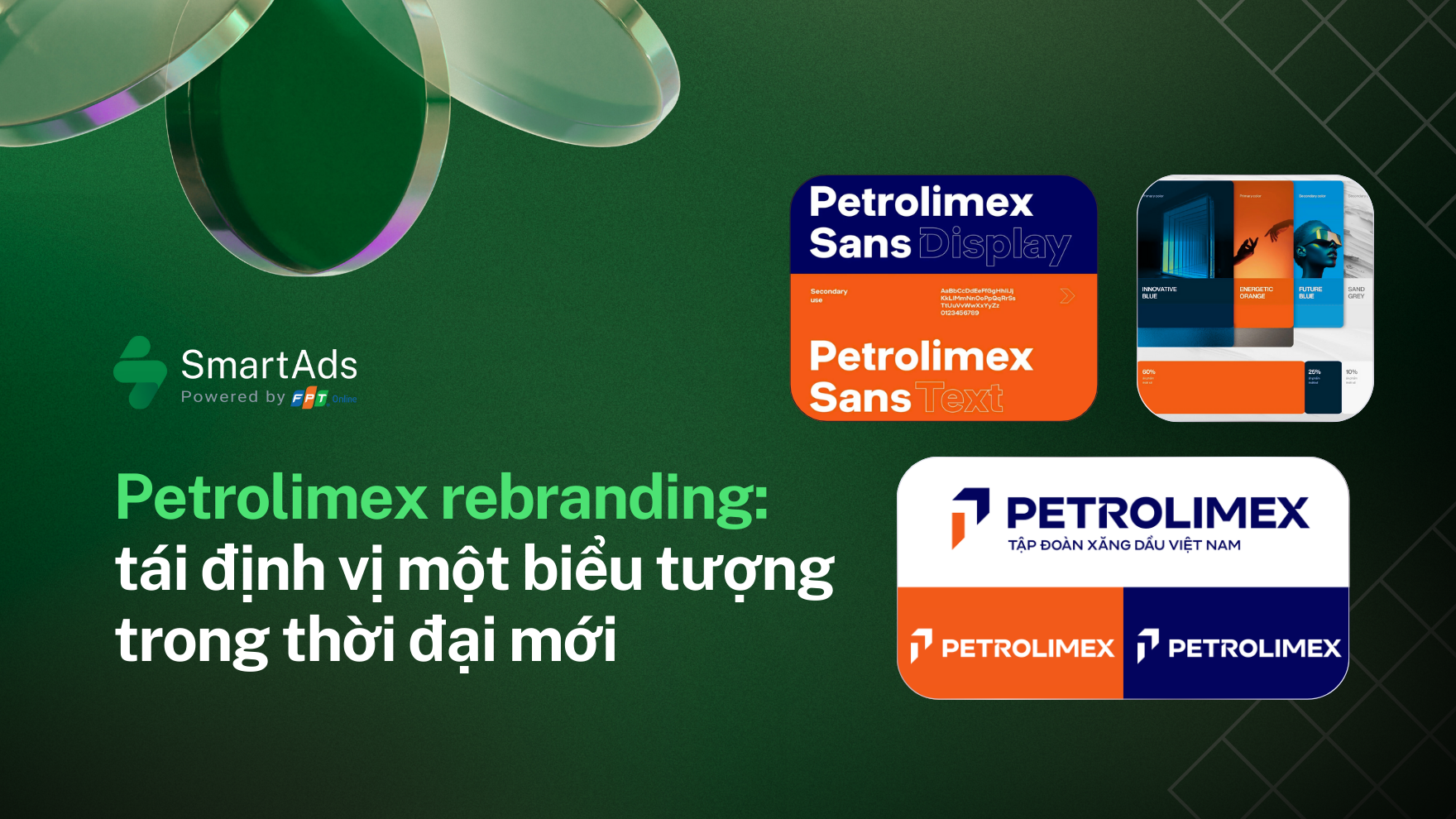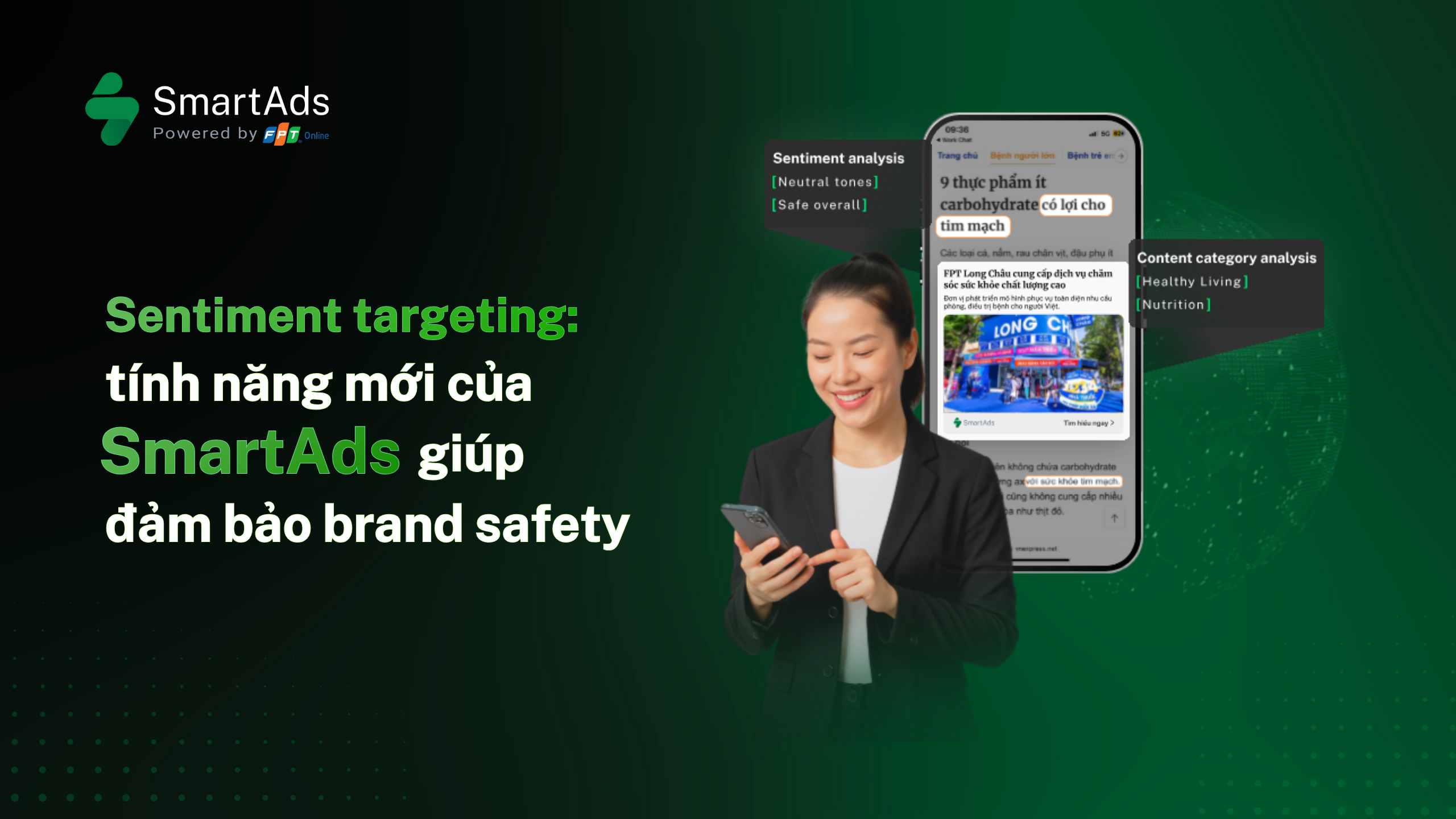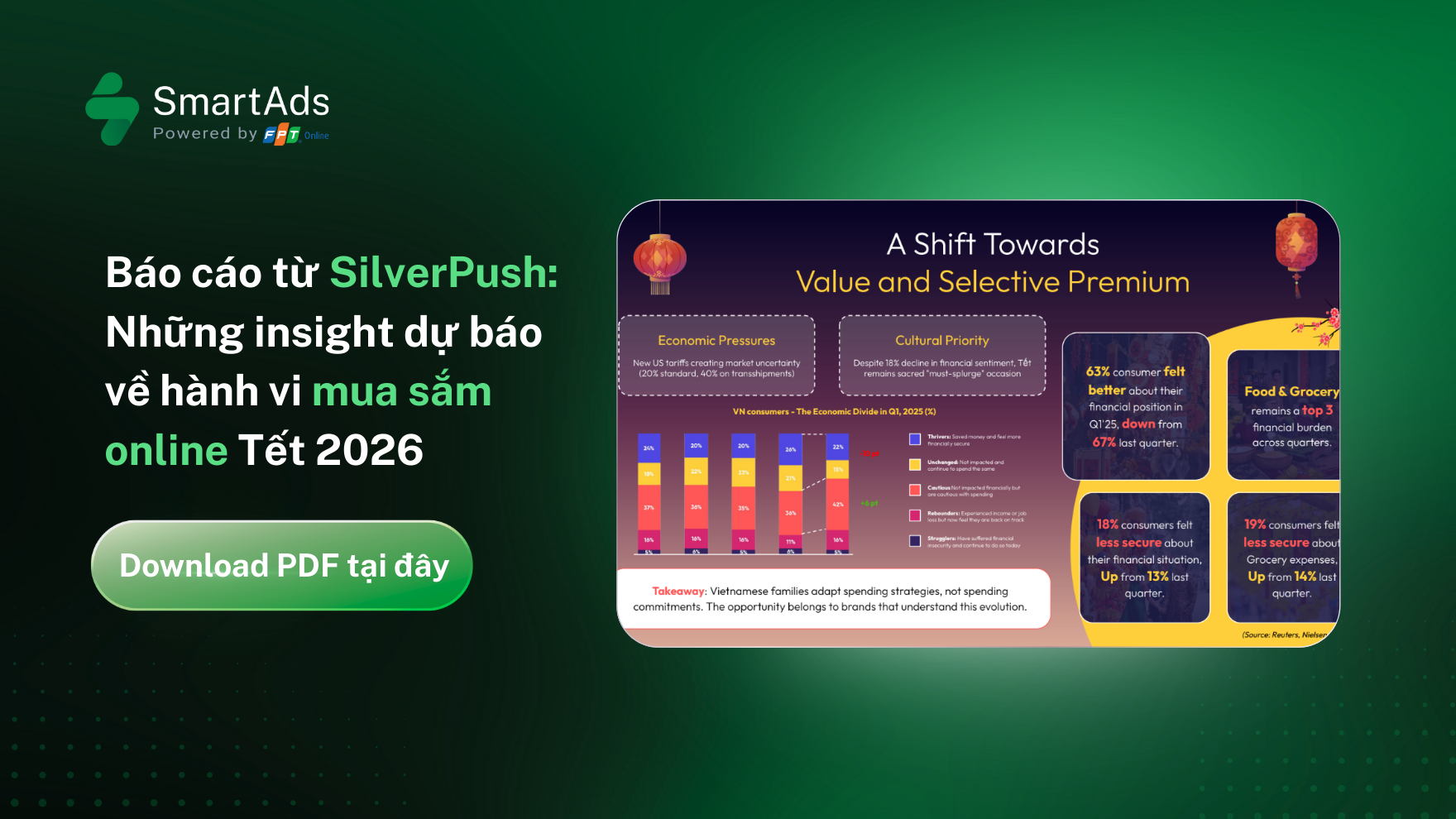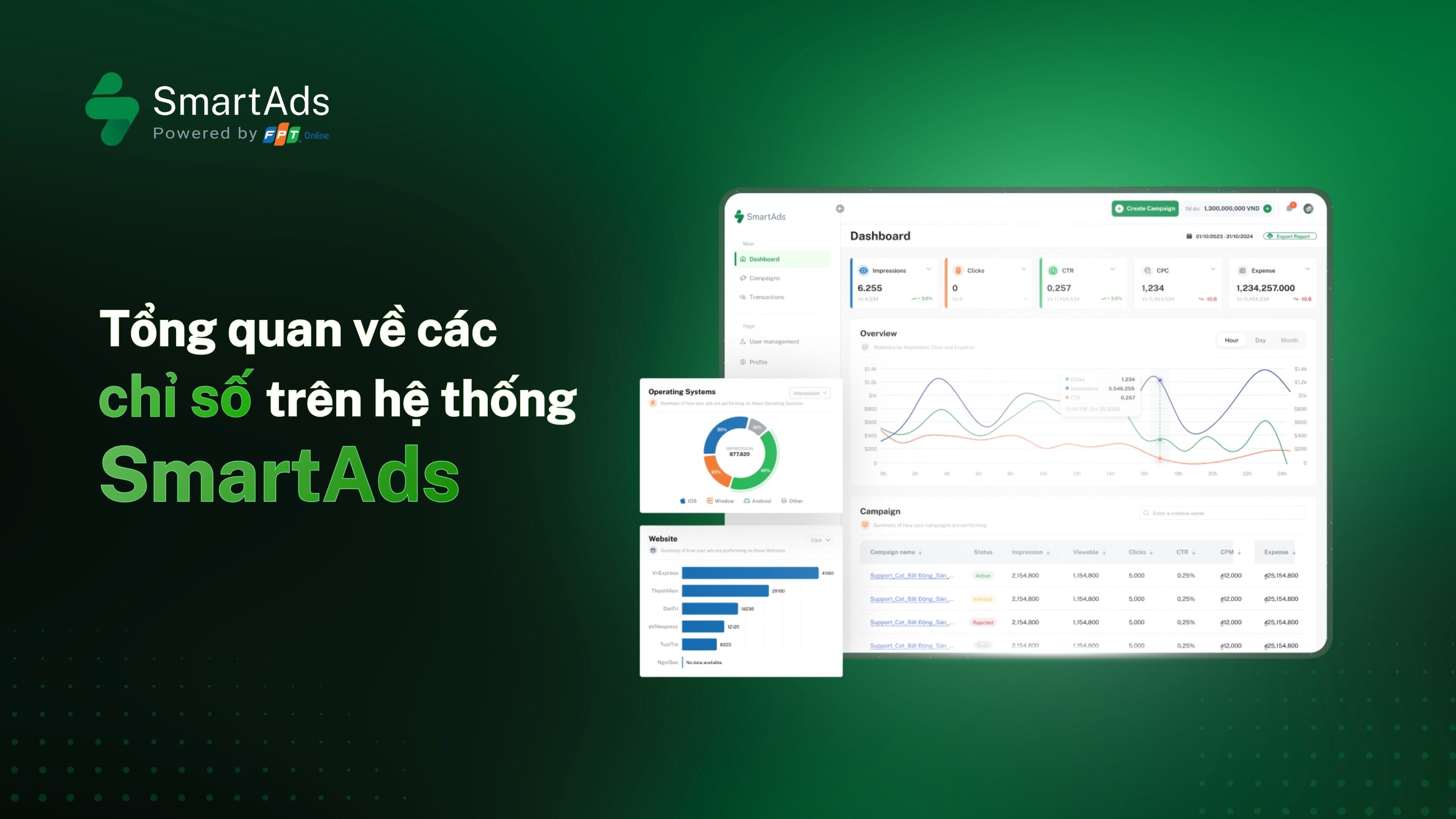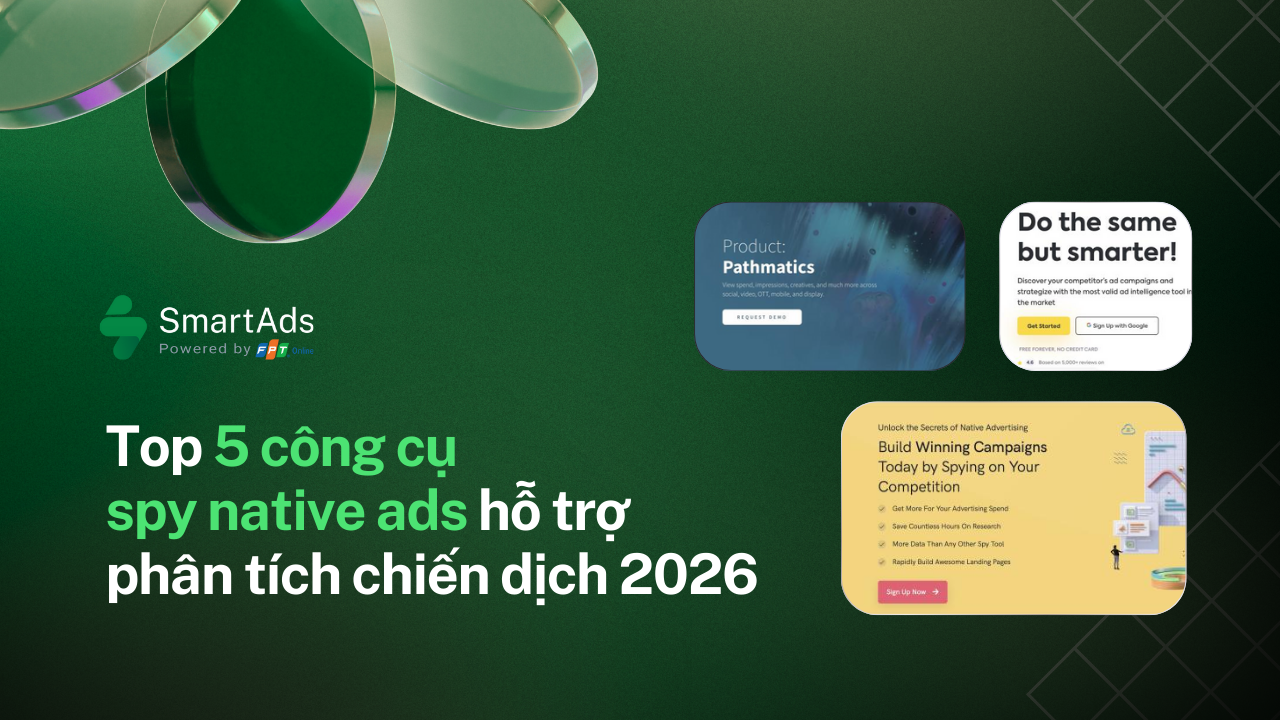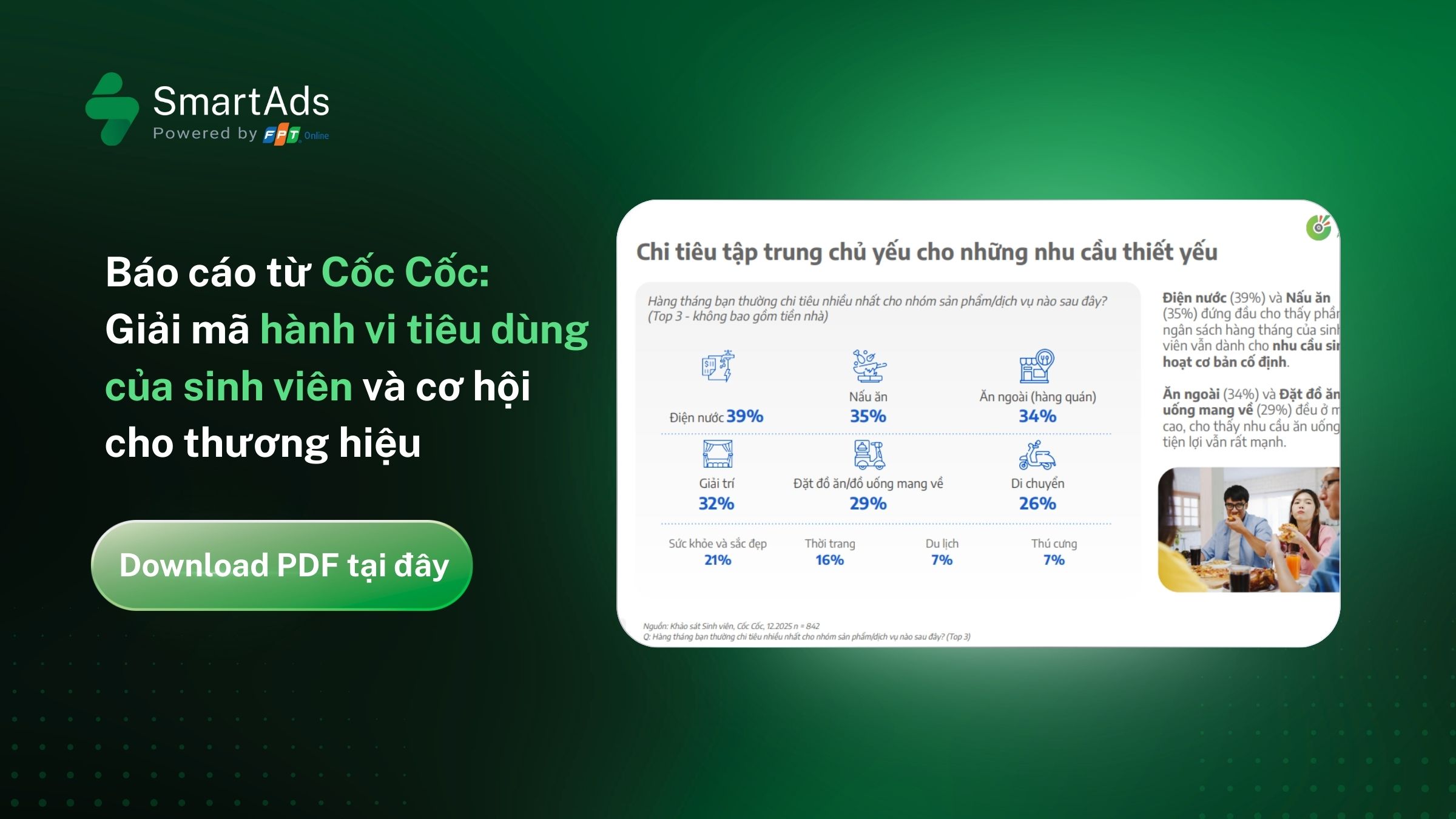1. Tâm lý về sự liên quan (Relevance)
Trong tâm lý học, theo nguyên tắc Selective Attention hay sự chú ý có chọn lọc, con người thường chỉ chú ý đến thông tin mà họ cảm thấy có giá trị hoặc có liên quan đến mình. Điều này đặc biệt quan trọng trong lĩnh vực quảng cáo. Khi quảng cáo xuất hiện và phản ánh đúng nhu cầu hoặc sở thích của khách hàng, họ sẽ có xu hướng dừng lại và xem xét kỹ lưỡng hơn. Theo Environics Research, 79% người tiêu dùng có xu hướng mua sắm từ các thương hiệu chia sẻ cùng giá trị với bản thân họ. Điều này chứng tỏ rằng sự liên quan (Relevance) giữa thương hiệu và giá trị cá nhân là yếu tố quan trọng trong quyết định mua hàng. Hơn nữa, theo nghiên cứu Seasonal Holidays Study do YouGov thực hiện, có đến 96% người tiêu dùng quyết định mua hàng thông qua quảng cáo được cá nhân hóa, phù hợp với nhu cầu và sở thích của họ. Do đó, sự liên quan của quảng cáo dưới sự chú ý có chọn lọc do nhu cầu cá nhân của khách hàng không chỉ kích thích sự quan tâm, mà còn tăng cường khả năng phản hồi tích cực đối với quảng cáo. Khi quảng cáo cung cấp thông tin phù hợp và giá trị, nó có khả năng thúc đẩy hành vi mua sắm, tạo ra chuyển đổi tích cực cho cả thương hiệu và khách hàng.
Ứng dụng: Để ứng dụng nguyên tắc "sự liên quan" trong thực tế, marketer cần khai thác dữ liệu hành vi người dùng nhằm cá nhân hóa nội dung quảng cáo theo nhu cầu, vị trí, sở thích hoặc hành trình mua sắm. Ví dụ, quảng cáo sản phẩm chăm sóc da sẽ hiệu quả hơn nếu hiển thị cho nhóm người dùng từng tìm kiếm về “da nhạy cảm” hoặc “trị mụn tuổi trưởng thành”.

2. Thiên kiến xác nhận (Confirmation Bias)
Thiên kiến xác nhận (Confirmation Bias) thể hiện rõ ràng trong hành vi của người tiêu dùng (Việt Nam) khi họ đánh giá và tin tưởng vào các hình thức quảng cáo. Theo báo cáo của Nielsen, 81% người tiêu dùng Việt Nam cho biết họ tin tưởng vào quảng cáo từ lời khuyên của bạn bè và người thân. Điều này cho thấy rằng khi một thương hiệu được người quen giới thiệu, người tiêu dùng có xu hướng tin tưởng mà không cần kiểm chứng thêm. Bên cạnh đó, sự tin tưởng vào ý kiến người dùng trên internet cũng không kém phần quan trọng, có đến 64% người tiêu dùng cho biết họ tin tưởng vào những đánh giá trên mạng. Các con số trên chứng tỏ rằng người tiêu dùng thường tìm kiếm thông tin phù hợp với niềm tin và trải nghiệm cá nhân, từ đó củng cố thiên kiến nhận thức của họ. Những yếu tố này thể hiện rằng thiên kiến xác nhận không chỉ ảnh hưởng đến cách mà người tiêu dùng tiếp nhận thông tin, mà còn định hình quyết định mua sắm của họ. Đặc biệt, trong bối cảnh quảng cáo digital đang phát triển vượt bậc như hiện nay, các thương hiệu cần chú trọng vào việc tạo ra nội dung và chiến lược truyền thông phù hợp với niềm tin và trải nghiệm của người tiêu dùng.
Ứng dụng: Để khai thác hiệu ứng thiên kiến xác nhận, các thương hiệu nên tích cực sử dụng đánh giá, nhận xét từ khách hàng thực tế, KOLs hoặc người quen của tệp khách hàng mục tiêu nhằm củng cố niềm tin. Ngoài ra, nội dung quảng cáo nên phản ánh quan điểm, giá trị hoặc trải nghiệm mà khách hàng vốn đã tin tưởng, từ đó tăng khả năng thuyết phục và chuyển đổi.
3. Tâm lý “Không bỏ lỡ” (FOMO - Fear of Missing Out)
FOMO (Fear of Missing Out) là một hiệu ứng tâm lý mạnh mẽ, khiến người tiêu dùng cảm thấy lo lắng khi nghĩ rằng mình có thể bỏ lỡ những trải nghiệm thú vị mà người khác đang tận hưởng. Tâm lý này đặc biệt dễ bị khai thác trong quảng cáo, khi các chiến dịch được thiết kế để kích thích hành động ngay lập tức và tạo ra cảm giác khan hiếm. Theo nghiên cứu của Eventbrite, 69% thế hệ Millennials trải qua cảm giác FOMO hàng ngày, cho thấy sự nhạy cảm của họ đối với các thông điệp quảng cáo sử dụng chiến lược này.
>>> Làm sao để lồng ghép FOMO vào tiêu đề quảng cáo? Thủ thuật clickbait giúp tối ưu chiến dịch 2025
Ứng dụng: Bằng cách sử dụng các thông điệp như “Ưu đãi chỉ dành cho 100 người đầu tiên” hoặc “Chỉ còn 24 giờ để nhận ưu đãi”, các thương hiệu không chỉ thu hút sự chú ý mà còn thúc đẩy hành vi mua sắm ngay lập tức. Việc khai thác tốt tâm lý FOMO không chỉ làm tăng khả năng tương tác với quảng cáo mà còn có thể tạo ra sự thúc đẩy mạnh mẽ trong quyết định mua hàng, từ đó giúp các doanh nghiệp tối ưu hóa chiến lược tiếp thị của mình.

4. Hiệu ứng hào quang (Halo effect)
Hiệu ứng hào quang là hiện tượng tâm lý mà khi một thương hiệu nổi tiếng với chất lượng sản phẩm tốt, người tiêu dùng sẽ có xu hướng tin rằng tất cả các sản phẩm của thương hiệu đó đều chất lượng, ngay cả khi họ chưa từng trải nghiệm. Điều này cho thấy rằng ấn tượng tích cực về một thương hiệu có thể tạo ra sự tin tưởng mạnh mẽ trong tâm trí khách hàng. Theo một nghiên cứu từ Econsultancy, 32,2% người tiêu dùng cho rằng mức độ chuyên nghiệp về thiết kế của trang web ảnh hưởng đến lòng tin của họ. Hơn nữa, 48% cảm thấy mua sắm an toàn hơn trên các trang web có chứng nhận uy tín. Hiệu ứng hào quang không chỉ tạo ra ấn tượng tích cực về thương hiệu mà còn có thể ảnh hưởng đến quyết định mua sắm của người tiêu dùng, dẫn đến việc họ dễ dàng tin tưởng vào tất cả sản phẩm của thương hiệu đó mà không cần phải kiểm tra chất lượng thực tế. Vì thế, các thương hiệu cần tận dụng hiệu ứng hào quang để tối ưu hóa trải nghiệm người dùng trên các nền tảng số, từ đó nâng cao giá trị thương hiệu và thúc đẩy doanh số bán hàng.
Ứng dụng: Để tận dụng hiệu ứng hào quang, doanh nghiệp nên đầu tư vào việc xây dựng hình ảnh thương hiệu nhất quán, chuyên nghiệp và uy tín trên mọi điểm chạm – từ thiết kế website, bao bì sản phẩm đến trải nghiệm mua hàng. Việc giới thiệu sản phẩm mới dưới danh nghĩa thương hiệu đã được yêu thích cũng giúp tăng độ tin cậy và rút ngắn hành trình ra quyết định mua của khách hàng.
Trên đây là 4 yếu tố tâm lý quan trọng ảnh hưởng đến hành vi tiêu dùng của khách hàng. Hiểu rõ tâm lý khách hàng là chìa khóa để tối ưu hóa chiến dịch quảng cáo. Bằng cách nhắm đúng đối tượng và tạo ra thông điệp phù hợp, doanh nghiệp không chỉ tăng cường hiệu quả quảng cáo mà còn xây dựng mối quan hệ lâu dài với khách hàng.
Về SmartAds, tiền thân là eClick, được phát triển bởi FPT Online – một trong những đơn vị tiên phong trong lĩnh vực công nghệ và truyền thông số tại Việt Nam. Trải qua quá trình đổi mới và phát triển, với mạng lưới hợp tác cùng các premium publisher hàng đầu, SmartAds khẳng định vị thế tiên phong trong việc áp dụng giải pháp brandformance tại thị trường Việt Nam, đồng thời kỳ vọng trở thành đối tác đáng tin cậy cùng thương hiệu trong hành trình chinh phục khách hàng. Nếu bạn đang tìm kiếm một giải pháp quảng cáo tối ưu nhận diện và hiệu suất, đừng ngần ngại tạo tài khoản và trải nghiệm setup chiến dịch trên SmartAds tại đây.
